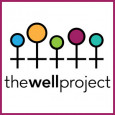This post originally appeared on and can be read in its entirety at The Well Project.
Older women are sometimes ignored in discussions about sexual health, HIV prevention and care. In the US, HIV began mostly as a disease of young men. Today, however, the epidemic affects both women and men of all ages, including older women. While 50 may not seem ’old,’ it is often the age used by organizations to keep track of health-related statistics. In 2018, more than half of all people living with HIV in the US were 50 years or older.
Around the world, 4.2 million people over the age of 50 – 13% of all people living with HIV – are living with the virus, UNAIDS estimates. In 2016, eight of ten older people living with HIV globally were in low- and middle-income countries. In the US, more than half of those living with HIV who know their diagnosis were at least 50 years old in 2018.
It is important that older women, their health care providers, and their families understand how the virus can, and does, affect this group.
- Despite the myth that older people do not have sex, many older women are sexually active. One study showed that close to three out of four people aged 57 to 64 had had sex in the last year, as had over half of those aged 65 to 74 years. Older women can be at greater risk of acquiring HIV during sex because their vaginal walls are thinner and their vagina is drier than in younger women. This can cause tears in the vaginal area.
- Many women over 50 are thinking about dating after a long-term relationship ends or their partner dies. Women who have been in monogamous relationships for many years and are now becoming sexually active with new partners may not think that they are at risk for HIV. They may feel uncomfortable discussing sexually transmitted infections or diseases (STIs or STDs) or safer sex with their partners or health care providers, and may not know how to protect themselves. Continue reading...
The Well Project is a non-profit organization whose mission is to change the course of the HIV/AIDS pandemic through a unique and comprehensive focus on women and girls. Visit their website, https://www.thewellproject.org/, to access fact sheets (English and Spanish), blogs, and advocacy tools, and to join a global community of women living with HIV.








1 Comment
1 Comment